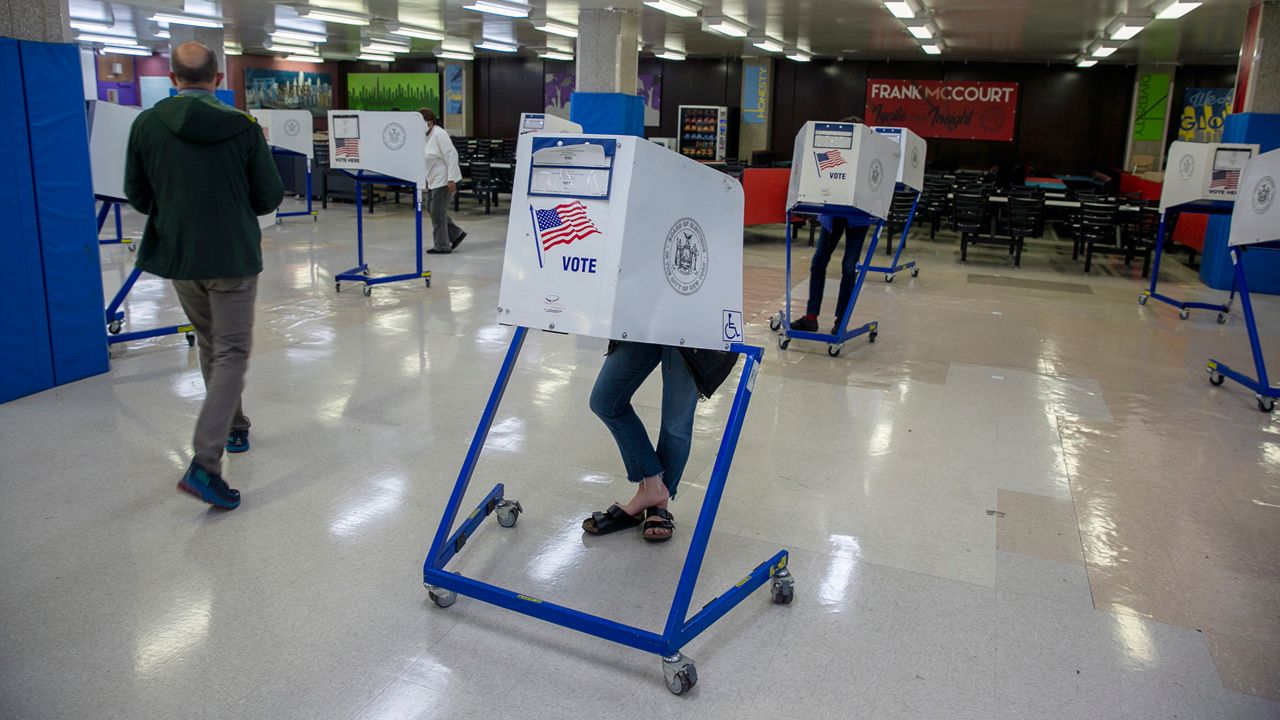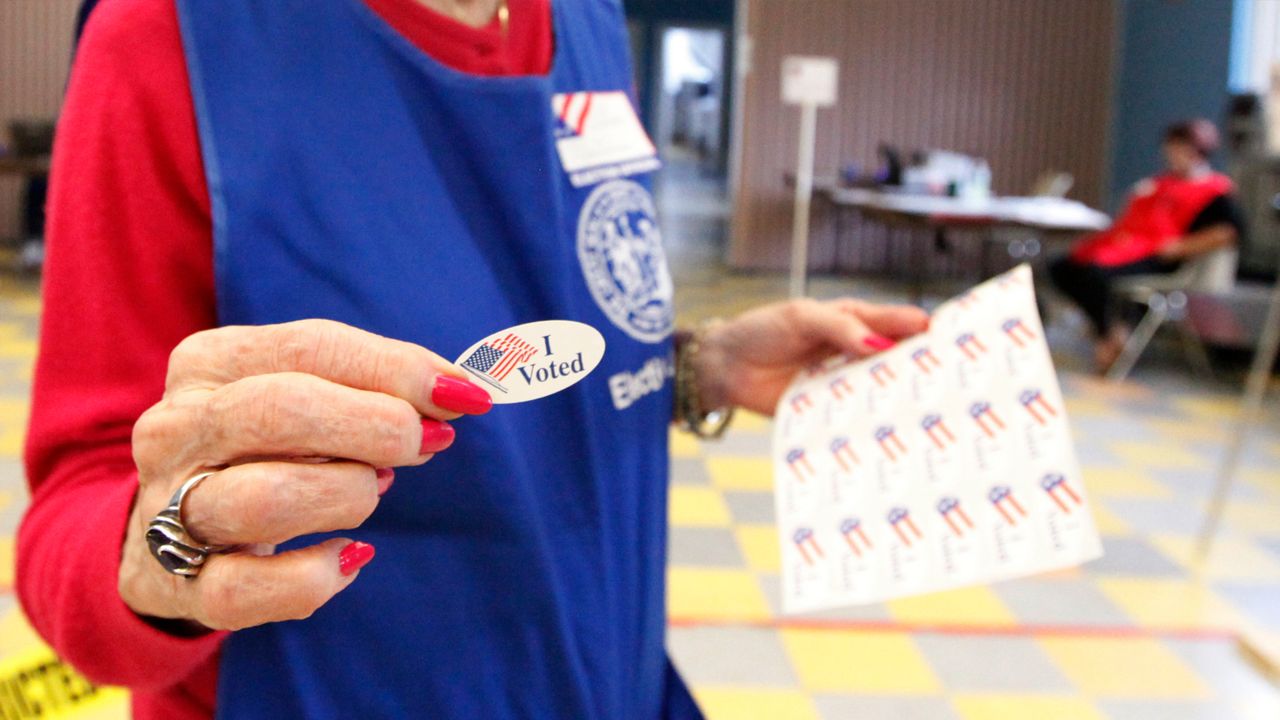With the 2024 general election fast approaching, New York City voters will have six ballot measures to consider—in addition to selecting candidates for city, state and federal offices.
The ballot measures span a wide range of topics — from cleaning public property to expanding protections in the state's Bill of Rights — and include one that would amend the New York State Constitution and five more that would change the city's charter.
The five city ballot proposals stemmed from a Charter Revision Commission that was put together by Mayor Eric Adams.
The proposals, and the commission process, were denounced by City Council members, who have accused the mayor of using the commission as a way to bypass the Democratic process.
Some of the proposals would dilute some of the power of the City Council. Council members were also unable to get their proposal to increase the body’s oversight over 20 of the mayor’s commissioner-level appointments on the ballot, as per city law, any referendum pushed by the mayor to supersede all other ballot questions.
Critics of the mayor are working down to the wire to warn voters against several City Hall-backed changes to the city’s most powerful document come Election Day.
“He does not have what it takes to be able to govern this city in a way that lifts up democracy," Public Advocate Jumaane Williams said.
“What the mayor is trying to do with the questions on the ballot two to six, is to transfer power away from the City Council and to put it in the mayor’s office," Ana Maria Archila, co-director for the Working Families Party, said.
“Proposals two through six is tantamount to mayoral control over the New York City Council," Council Speaker Adrienne Adams said.
Here’s your guide to the six ballot initiatives of 2024:
Ballot Proposal 1
This proposal seeks to amend the New York State Constitution’s Bill of Rights by adding additional protections against discrimination based on ethnicity, origin, age, disability and sex—including sexual orientation, and gender identity and pregnancy.
A “YES” vote on this “safeguards the right to abortion under the state constitution, ensuring lasting protections based on pregnancy status regardless of any changes at the federal level,” according to the City Council.
Ballot Proposal 2
The proposal focuses on keeping public property clean and would grant the city’s Department of Sanitation more authority to clean in city spaces, including parks and highway medians. It would also allow the department to regulate street vendors and how New Yorkers put out their garbage for collection.
Ballot Proposal 3
Currently, the City Council provides cost estimates for proposed laws before voting on them. This proposal would allow the Mayor’s Office of Management and Budget to offer its own cost estimates for these laws and require the Council to publish both sets of estimates before public hearings.
It would also formalize the requirement for the Council to notify the mayor’s office before holding public hearings or votes. Additionally, it extends deadlines for specific budget reports during the first year of a new mayoral administration and permanently gives the mayor additional time to prepare and submit the city’s annual budget.
Ballot Proposal 4
This proposal revolves around public safety. It would require the City Council to give a 30-day notice before voting on any law that impacts the New York City Police Department, the Department of Correction and the Fire Department of New York.
If the proposal passes, the mayor or any of the affected agencies could hold public hearings during that period to gather public input on legislation under consideration.
Ballot Proposal 5
The proposal here is concerned with providing more comprehensive evaluations of city infrastructure and mandating that those findings then inform capital planning and capital planning deadlines.
In other words, it would require the city to include the cost of maintaining city facilities, infrastructure and investments in its capital planning reports. Currently, these reports include information on what needs to be repaired, expanded and built.
Ballot Proposal 6
The final proposal would do three things. First, it would create a permanent position for the Chief Business Diversity Officer, a role created by the Adams administration, and which is currently held by Michael Garner. The CBDO reports to and works within the Minority and Women-Owned Business Enterprises team.
Next, it would give the mayor the power to issue film permits. Currently, that responsibility is solely under the Department of Small Businesses’ jurisdiction.
And finally, Prop 6 would merge two city archive boards — the Archival Review Board and the Archives, Reference and Research Advisory Board — into one.
Early voting is until Nov. 3, and Election Day is Tuesday, Nov. 5. Here's what you need to know for voting by mail and NY1's voter guide.





